A few weeks ago, I stumbled upon a $9 copy of The Palace Papers in the midst of re-reading Harry Potter.
Now by day, I'm absorbed in Tina Brown’s royal exposé, an addictive read that makes my commute seem inconveniently short, and by night, I'm immersed in The Goblet of Fire, reliving the same struggle I had as a kid to put the book down and go to sleep. Incidentally, I now see how masterfully J.K. Rowling has cloaked the mystique and pageantry of British aristocratic traditions in magic.
The parallels are everywhere. Harry Potter is tormented by the Daily Prophet, while Prince Harry is tormented by the Daily Mail. The Sorting Hat mirrors royal investitures. Houses at Hogwarts work exactly like houses at Eton. And “pure-blood” families cast out nonconformist relatives the way the royals exiled Edward VIII.
Having been a Londoner myself many years ago, I now appreciate the connections with a keener eye for the class undertones that readers outside the UK might miss.
Grand Castles, Grander Traditions
Both worlds revolve around magnificent, borderline mythical buildings that aren’t merely locations, but characters. Hogwarts, with its moving staircases and watchful portraits, could be Windsor Castle’s magical cousin. These aren’t just schools or homes; they’re living, breathing institutions whose walls whisper centuries of secrets.
The boarding school tradition goes far beyond academics to create a complete social ecosystem where lasting identities and lifelong bonds are formed. Most readers don’t realize that Hogwarts’ house system isn’t merely inspired by elite English boarding schools like Eton—it may as well be them dressed up in magic. The house rivalries and tribal loyalty of belonging to Gryffindor vs. Slytherin are prime examples of how Rowling translated reality.
Personified Properties
In both worlds, properties don't merely have addresses; they have names that carry serious weight. Think Clarence House, Sandringham, Balmoral in the royal realm, or Grimmauld Place, Malfoy Manor, The Burrow in the wizarding world. Each name reflects its dwellers’ social standing.
The Pageantry of Power
Hierarchy isn’t merely reflected by property names—it’s paraded through elaborate ceremonies and traditions. The Sorting Hat ceremony at Hogwarts serves the same purpose as royal coronations or investitures. And the pomp and circumstance aren’t merely for show; they’re how these communities show everyone exactly where they stand.
I witnessed this firsthand at Trooping the Colour for the Queen’s birthday—a massive military parade with thousands of spectators culminating in the choreography of the royal family on the Buckingham Palace balcony for an RAF flyover with the Queen at the centre, and the most senior royals in the most coveted spots by her side. The sheer scale and precision of this annual event are as much a display of power and hierarchy as they are a celebration.
Secrets, Sabotage & Scorekeeping
The exclusivity extends beyond public ceremonies. A friend of mine went through the recruitment process to work for the royal household, and it was so rigorous and confidential that there were rumours she was interviewing for Sir Elton John. I was stunned to learn otherwise. As a denim-clad roadie friend put it when I told him over drinks, “That’s bigger than rock’n’roll. That’s the fucking Queen.”
That level of secrecy extends to how these institutions handle internal competition. The house cup competition in Harry Potter mirrors the constant competitive undercurrent behind palace doors—who’s more popular, who’s doing their duty better, who’s winning the public’s favour. It’s all very civilized on the surface, but there’s intense scorekeeping (and alleged sabotaging) simmering at the core.
Blood, Lineage, and the Ultimate Insider Club
Perhaps most tellingly, both worlds are obsessed with bloodlines and heritage. The pure-blood families in Harry Potter—the Blacks, the Malfoys, the Lestranges—have their family trees, coats of arms, and inherited prejudices, just like the royal family with their carefully documented ancestry and bloodline.
Class markers show up in the smallest details and the most discriminatory comments. I once had a colleague who travelled with luggage bearing his family crest—a form of understated status signalling that both worlds excel at.
Another colleague who had proudly told me about her distant royal bloodline connections made a face as though she’d just sucked on the bitterest lemon when I asked about our latest recruitment candidate. “Eugh, her Scouse accent,” she said, shaking her head as if warding off the memory. It was completely out of character for someone I’d known to be kind and polite. I was dumbfounded to learn that as a Canadian, I was spared ingrained class biases that still constrain many Brits.
Both the wizarding and royal worlds create insider vs. outsider dynamics where knowing the right protocols, speaking the right language, and understanding the unspoken rules mark you as belonging—or not. The wizarding world has its spells and magical terms, and the royal world has its forms of address and byzantine etiquette that might as well be magic to the uninitiated.
Perhaps the most extreme form of outsider is the nonconformist who finds themselves burned from their pure-blood family tree. Sirius Black’s banishment from his family in Harry Potter was surely inspired by the royals’ exile of Edward VIII following his abdication from the throne.
Both parties ruthlessly prune threats to their carefully maintained order. As the former king concludes in the drama series The Crown, “With this family, when you’re in, you’re never quite sure that you’re in. But when you’re out, there’s no doubt at all. You’re out.”
The Fame Game
Fame operates by the same brutal rules in both worlds. Both Harry Potter and the royals (particularly Prince Harry and Meghan at present) are simultaneously revered and criticized, with devoted followers and harsh critics analyzing their every move. The press attention, the lack of privacy, the weight of expectations—there’s no respite for the famous.
Reading about Prince Harry’s struggles with Daily Mail coverage alongside Harry Potter’s saga with the Daily Prophet creates a meta commentary on fame itself—and the UK’s obsession with tabloid gossip.
Rowling’s Real Magic
Rowling took exclusive, hereditary British traditions and made them magical and (somewhat) meritocratic. She democratized the fantasy of aristocratic life by making it accessible through wit and bravery rather than merely bloodline.
Unbeknownst to most readers, Harry Potter’s global appeal stems from its translation of British class structures into something universal: the desire to belong to something grand and meaningful, and to be part of traditions bigger than ourselves. As much as Rowling invented a magical world, she largely decoded an existing one.


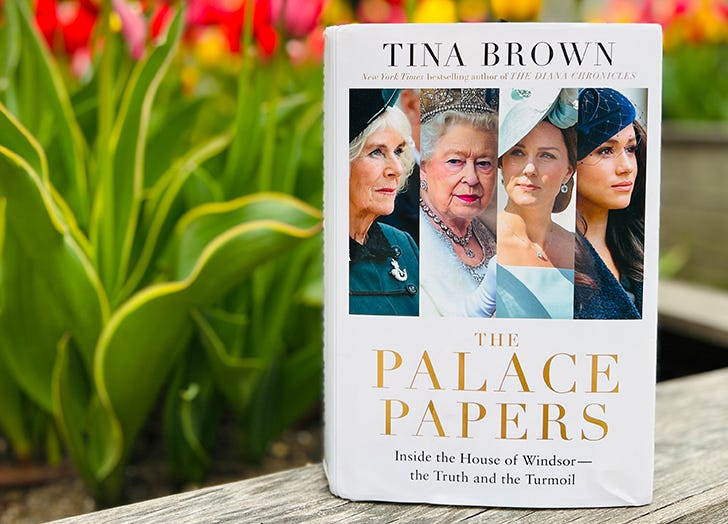
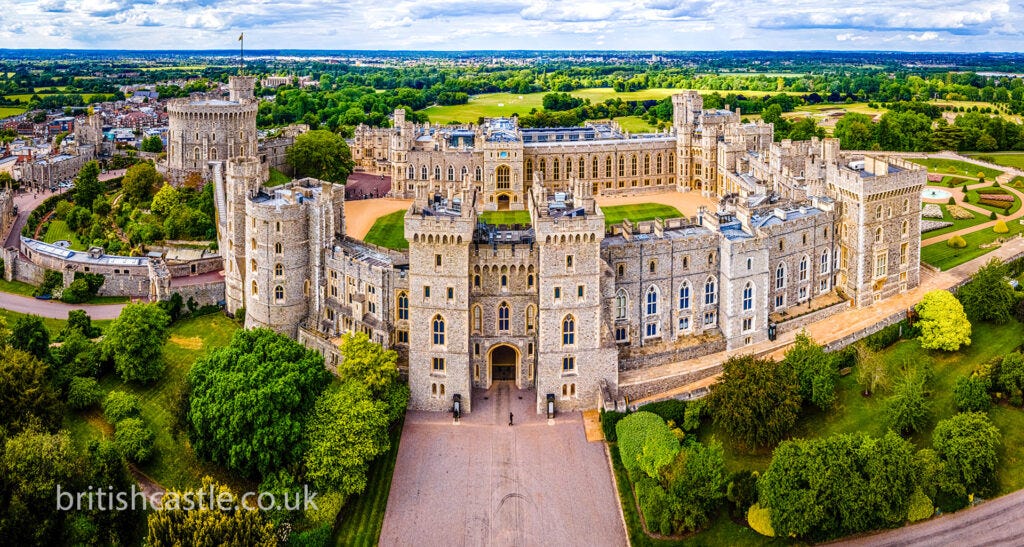
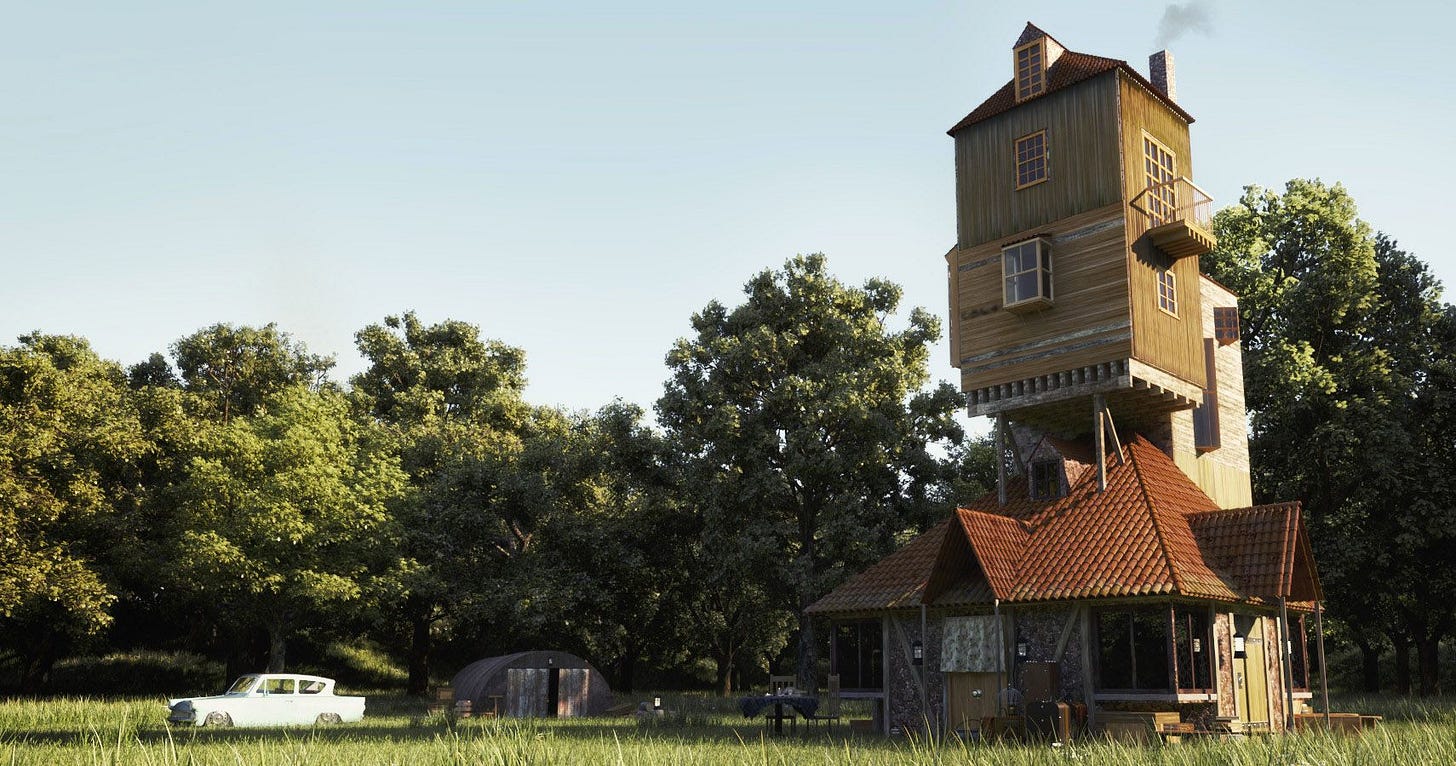
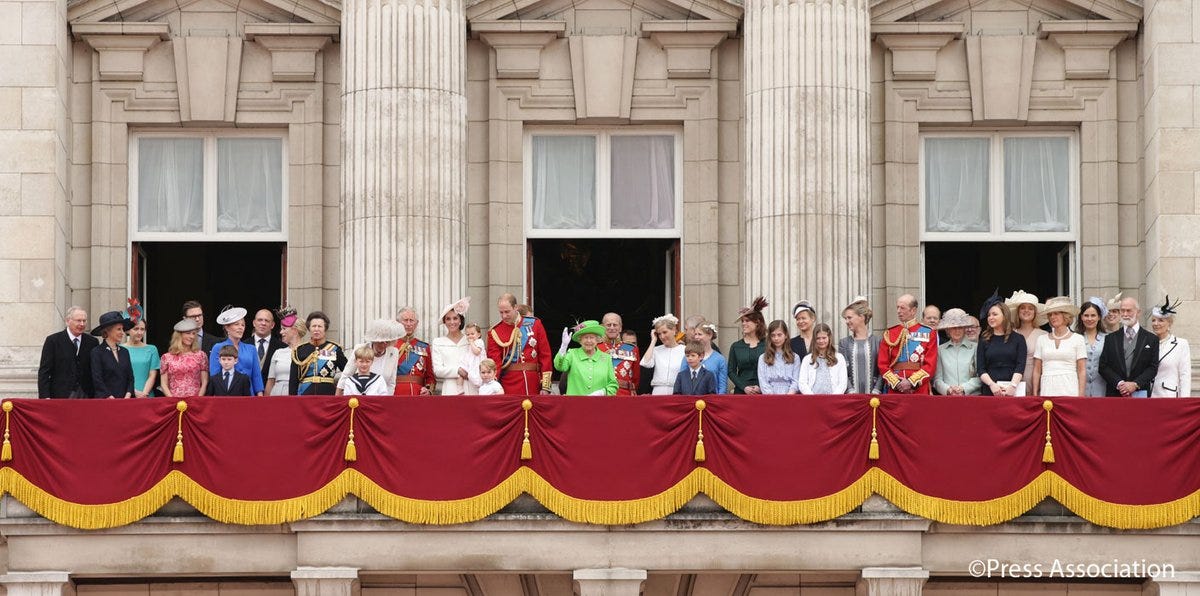
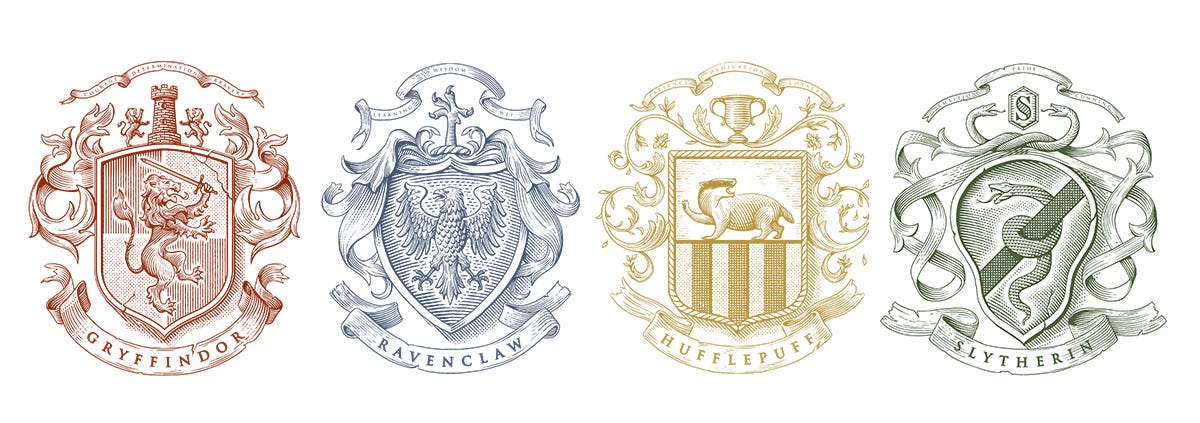
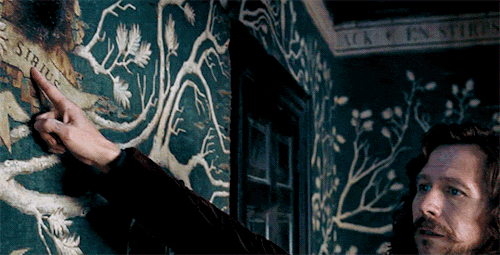


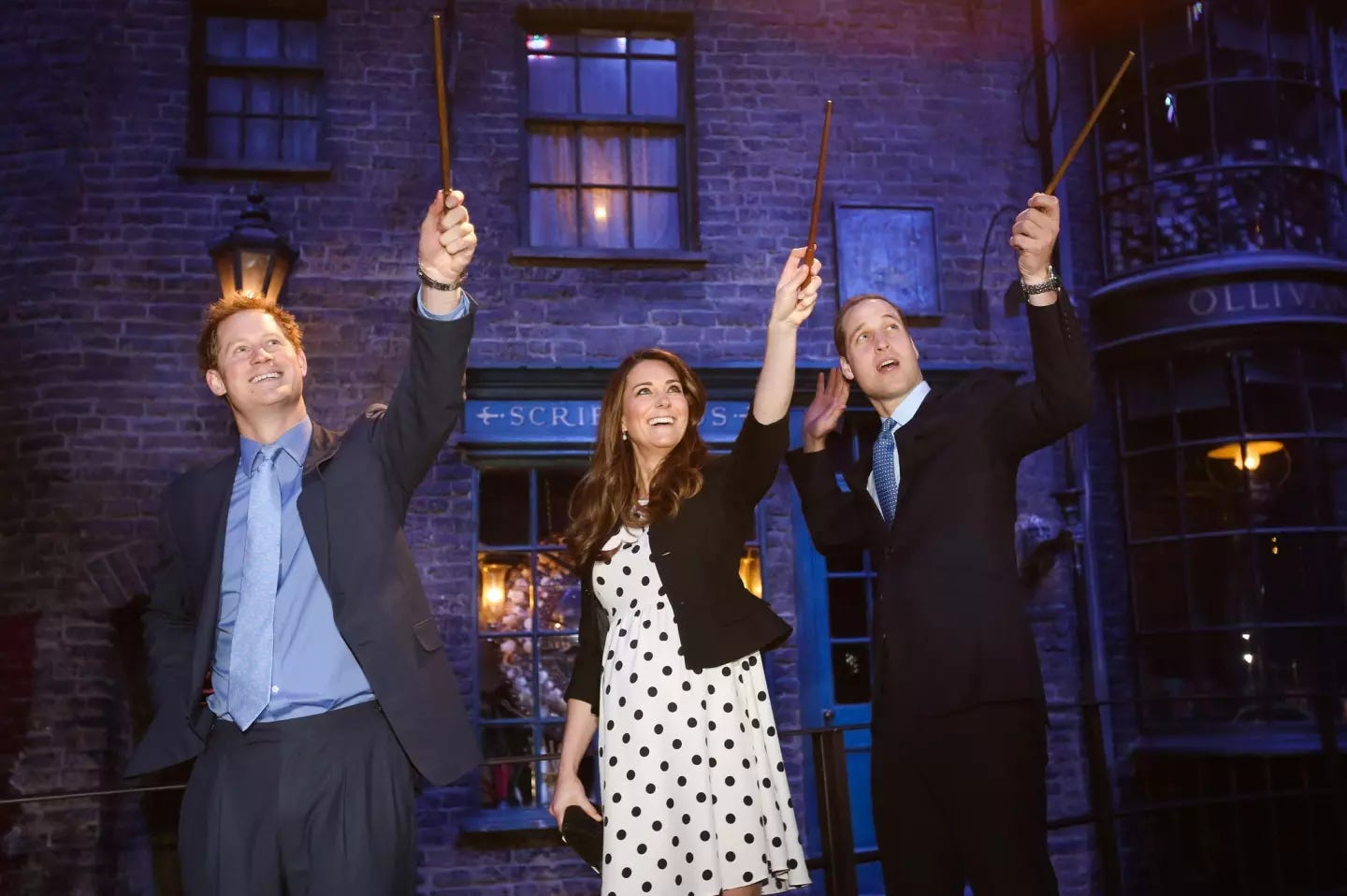
I really liked this unpacking (it also drove me down a rabbit hole through your blog haha)
Hierarchy and class makes me think about the modern classism of which company/job you are in. More than a family crest now it's the "ex-[big name]" that signals which tribe you are part of. Even within that tribe, there'll be layers (bigtech vs newtech, big media vs new media)
While there is a meritocracy, you still figure things out especially if you aren't 'in the know' of how things work. This is why Hermione was such a spit in the face to Draco - she was not only coming from muggle parents but she brought insane curiosity that made up for her apparent lack of background. I wonder how much of it was fed by insecurity being a 10 year 'normal girl' being sent to a school of magic, and turns out a giant snake in the sewers
I love that you found yourself reading these books in parallel and shared your findings here. Makes me want to go back and see what else is aligned.